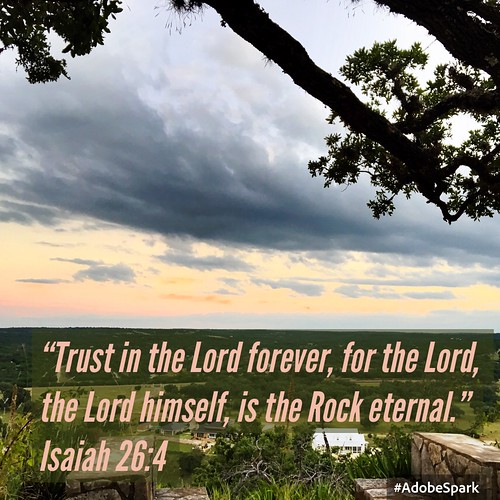6 Ways to Safely Serve Others During COVID-19
Yesterday our “Friday Morning Men’s Group” at our church met for the first time over a Zoom videoconference, which is the first time we’ve ever gathered virtually in the history of our group. Things went well overall. It was great to see and check in with everyone. We had about 30 of us in the conference I think, and everyone’s camera and microphone worked. We used a basic format, after an opening prayer we took turns sharing an update on a “silver lining” or challenge from our current time of “sheltering in place” at home during the COVID-19 pandemic. I was struck by a few things:
- A number of guys are struggling with the lack of social interaction and their empty schedules.
- Some men have already started taking advantage of virtual connection opportunities, reading daily from a novel to their grandchildren, for instance.
- Many are finding it difficult to have their grandchildren close by, but not being able to be with them / hug them / interact with them “in person.”
- Many are finding it difficult to not know how long this situation will go on, and are very eager to get back to “normal schedules.”
During the course of our videoconference and conversations, six things stood out to me as ways we can safely serve each other during COVID-19. There are clearly a LARGE number of needs we have within our group and in our larger communities. Finding tangible ways to serve and help each other during this disruptive time of crisis is important and can be a healthy addition to our schedules and lives.
1. Setup Virtual Family Dinner Connections
At least two of the guys in our group have already setup a “virtual family dinner” meeting via a Zoom videoconference. We did this with a friend and school colleague about a week ago, and it worked well. We connected to him via a Google Hangouts Meet videoconference on my iPad, and then put the iPad at our dinner table at the place where he’d sit if he was with us in person. Tomorrow for Easter Sunday, we’ve scheduled “dinner together” with my parents in Kansas and my sister and family in Missouri This reminds me of the Biblical exhortation we read in Hebrews 10:23-25:
‘Let us hold unswervingly to the hope we profess, for he who promised is faithful. And let us consider how we may spur one another on toward love and good deeds, not giving up meeting together, as some are in the habit of doing, but encouraging one another—and all the more as you see the Day approaching. ‘
Hebrews 10:23-25
2. Invite Others to and Consider Leading a Small Group
The COVID-19 pandemic has moved us as individuals, families, and communities into a season for many new things. Remote learning for school, or closing schools. Staying at home with family perhaps more than ever, cooking and spending more time together. Finding more ways to share our resources with others in need, via non-profits like our Oklahoma City Regional Food Bank and Project 66 in Edmond.
I want to suggest it’s also the SEASON for virtual small group meetings. We have outstanding, free tools to facilitate small group interactions and meetings at a distance. These include FREE (40 minute or less) videoconferencing with Zoom, and Facebook Groups. While Zoom specifically has drawn a lot of recent, negative media attention for conference security problems, these have been addressed swiftly. If you have access to another collaborative videoconferencing platform or are willing to pay for one, by all means go for it. But if not, Zoom is a viable and good option for small group virtual meetings.
Our adult Sunday School Class, “Curiosity and Questions: Jesus and Science,” has continued to meet the past month as we’ve started “sheltering in place” as a city and a state. We’re meeting over a videoconference at our “regular time” on Sunday mornings between our church’s virtual worship services. We’re using both a private Facebook group and Google Classroom to share resources and updates. Our church’s recent move to “Realm Software” as a church-wide information system has empowered individual teachers (like me) to directly email and contact our group members. I don’t think our church small group connections should end with Wednesday nights and Sunday mornings, however.
In addition to considering JOINING a virtual small group, I want to encourage you to consider STARTING one. Start a book club. You might do this by:
- Choosing a new book you want to read, or a book you love and want to share with others.
- Creating a Private Facebook Group, which you can moderate and control (both members and posts)
- Deciding on a weekly meeting time for your virtual book club.
- Creating a free account with Zoom, and creating a repeating meeting / videoconference at your desired time.
- Creating a REPEATING EVENT in your Facebook group, including the Zoom conference JOIN instructions.
- Inviting your friends and acquaintances to join your small group / book study.
As we each grow more comfortable and proficient at meeting over videoconferences, the number of available small groups will grow. Your group does not have to have a large number of members to be “successful” and beneficial, to both you and other members. Small groups should be all about connecting, relationships, interacting, as well as learning.
Step out and create your own small group, for a book study or other purpose. The ideas you discuss together with your small group members and the connections you make in upcoming weeks can be IMPORTANT pieces of the wellness / self-care plan we each need to not only survive but also THRIVE in this COVID-19 pandemic season.
3. Utilize Daily Devotion and Bible Reading Apps
We all can benefit from daily “quiet time” to pray, read scripture, meditate, and seek the voice of God. I have been using the free “Pray as You Go” app and website for the last couple years, and highly recommend it. Pray As You Go is a project of the Jesuits of Britain, Each day they post a 15 to 20 minute meditation which focuses on a different Bible verse or series of verses, which are repeated twice during each devotional.
Use a Bible reading app like the YouVersion Bible, which includes a variety of Bible Study reading plans, the ability to connect to others for prayer and encouragement, and videos from amazing Christian theology and evangelist media creators like The Bible Project. The verse of the day feature, the ability to highlight and share scripture verses, and even create Bible Verse InfoPics right within the app are fantastic and powerful ways to focus our minds above “on the things of God” when so many current events “down below on earth” seem chaotic and troubling.
4. Keep a Daily Written Journal
Journaling about your life, your day, your fears, your hopes, your dreams and other aspects of your thought life can be an extremely healthy and healing activity at any season of life. Particularly as we find ourselves in the midst of a global pandemic, something no one alive today has previously experienced, journaling can be a constructive and beneficial activity. When I was in college and after college graduation, I was an avid journal writer. Then sometime around 2003, I discovered blogging. “Writing in public” on a blog or via a social media platform can be beneficial in similar ways to keeping a private journal, but there are more complexities to digital, shared, interactive writing. When deciding whether or not you’ll keep a journal during COVID-19, remember the benefits of your writing times may not be limited to you. Your grandchildren and other descendants may read what you write this week! We are literally living through history, so why not document your journey in detail for your benefit and the potential future benefit of others?
5. Engage in Oral History Projects with Family Members
There’s no time like the present to start a family oral history project. A few weeks ago, I shared a one hour free webinar on “Family Oral History Projects” which was recorded and is now available on YouTube along with several others.
The full description of that March 19, 2020 virtual workshop was:
As parents, children, and teachers are staying at home practicing “social distancing,” it’s a perfect time to create family oral history projects! In this 60 minute, interactive webinar, Dr. Wes Fryer will share a variety of tools and strategies to conduct oral history interviews and create oral history digital stories which can be shared with your family and the world.
Description of “Family Oral History Projects” by Dr. Wesley Fryer
Who tells your story? You are the best person to tell it, and there’s no time like the present to get started.
6. Be a Digital Witness for Jesus
As Christians, we are called to not just share the story of OUR lives, but also the story of how GOD has moved and continues to move in our lives. Check out my 2020 book, “Pocket Share Jesus: Be a Digital Witness for Christ,” for more ideas and project suggestions about how to do this. The full book is available free online. It will be available for sale on Amazon soon.





